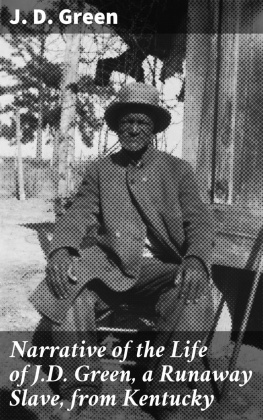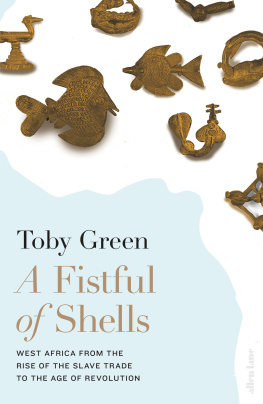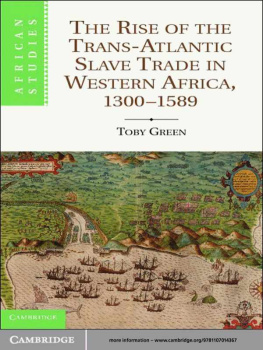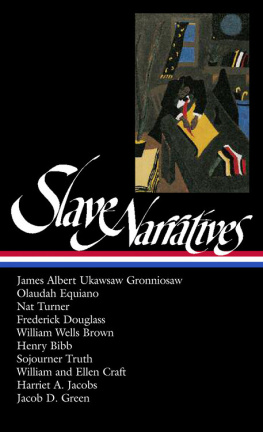TESTIMONIALS.
Table of Contents
Jacob Green, a coloured man and an escaped slave, has lectured in my hearing, on American Slavery, in Springfield School-room, and I was much pleased with the propriety with which he was able to express himself, and with the capabilities which he seemed to possess to interest an audience.
GILBERT Mc.CALLUM.
Minister of Springfield
Independent Chapel, Dewsbury.
Sept 2, 1863.
Hopton House, Sept. 10, 1863.
I have much pleasure in bearing my testimony in favour of Mr. Jacob Green, as a lecturer on the subject of American Slavery, having been present when he gave an able and efficient lecture here about a month ago. Having himself witnessed and experienced the fearful effects of that accursed "institution," he is well fitted to describe its horrors, and I have no doubt that amongst certain classes, his labours in the anti-slavery cause may be more telling and efficient than those of more highly educated lecturers who do not profess his peculiar advantages. I shall be well pleased to hear of him being employed by any anti-slavery society.
JAMES CAMERON,
Minister of Hopton Chapel.
Eccleshill, Sept. 11, 1863.
Mr. Jacob Green gave a lecture on Slavery, in our School-room here, about two months ago, which I considered a very able one; and it was so considered by my people.
JOHN ASTON.
I certify that Mr. Jacob Green has delivered two lectures in the Foresters' Hall, Denholm, to a very numerous audience; and on each occasion has given great satisfaction. The subjects were, firstSlaverysecond, the American War. He lectures remarkably well, and has a powerful voice; and I have not the least doubt would give satisfaction in lecturing elsewhere. The chair on each occasion was takenfirst, by myself as incumbentsecond, by the Rev. T. Roberts, Independent Minister.
J.F.N. EYRE.
Incumbent of Denholm.
Oct. 18th, 1863.
I can thoroughly endorse the sentiments of the Rev. J.F.N. Eyre, herein recorded.
T. ROBERTS.
Mr. J.D. Green has lectured four times in our Schoolrooms, and each time he has given very great satisfaction to a large assembly. From what I have seen of him, I believe him to be worthy of public sympathy and support.
WILLIAM INMAN, Minister.
Ovenden, Nov. 14, 1863.
NARRATIVE, &c.
Table of Contents
My father and mother were owned by Judge Charles Earle, of Queen Anne's County, Maryland, and I was born on the 24th of August, 1813.
From eight to eleven years of age I was employed as an errand boy, carrying water principally for domestic purposes, for 113 slaves and the family. As I grew older, in the mornings I was employed looking after the cows, and waiting in the house, and at twelve years I remember being in great danger of losing my life in a singular way. I had seen the relish with which master and friends took drink from a bottle, and seeing a similar bottle in the closet, I thought what was good for them would be good for me, and I laid hold of the bottle and took a good draught of (Oh, horror of horrors) oxalic acid, and the doctor said my safety was occasioned by a habit I had of putting my head in the milk pail and drinking milk, as by doing so the milk caused me to vomit and saved my life. About this time my mother was sold to a trader named Woodfork, and where she was conveyed I have not heard up to the present time. This circumstance caused serious reflections in my mind, as to the situation of slaves, and caused me to contrast the condition of a white boy with mine, which the following occurrence will more vividly pourtray. One morning after my mother was sold, a white boy was stealing corn out of my master's barn, and I said for this act we black boys will be whipped until one of us confesses to have done that we are all innocent of, as such is the case in every instance; and I thought, Oh, that master was here, or the overseer, I would then let them see what becomes of the corn. But, I saw he was off with the corn to the extent of half a bushel, and I will say nothing about it until they miss it, and if I tell them they wont believe me if he denies it, because he is white and I am black. Oh! how dreadful it is to be black! Why was I born black? It would have been better had I not been born at all. Only yesterday, my mother was sold to go to, not one of us knows were, and I am left alone, and I have no hope of seeing her again. At this moment a raven alighted on a tree over my head, and I cried, "Oh, Raven! if I had wings like you, I would soon find my mother and be happy again." Before parting she advised me to be a good boy, and she would pray for me, and I must pray for her, and hoped we might meet again in heaven, and I at once commenced to pray, to the best of my knowledge, "Our Father art in Heaven, be Thy name, kingdom come.Amen." But, at this time, words of my master obtruded into my mind that God did not care for black folks, as he did not make them, but the d---l did. Then I thought of the old saying amongst us, as stated by our master, that, when God was making man, He made white man out of the best clay, as potters make china, and the d---l was watching, and he immediately took up some black mud and made a black man, and called him a nigger. My master was continually impressing upon me the necessity of being a good boy, and used to say, that if I was good, and behaved as well to him as my mother had done, I should go to Heaven without a question being asked. My mother having often said the same, I determined from that day to be a good boy, and constantly frequented the Meeting-house attended by the blacks where I learned from the minister, Mr. Cobb, how much the Lord had done for the blacks and for their salvation; and he was in the habit of reminding us what advantages he had given us for our benefit, for when we were in our native country, Africa, we were destitute of Bible light, worshipping idols of sticks and stones, and barbarously murdering one another, God put it into the hearts of these good slaveholders to venture across the bosom of the hazardous Atlantic to Africa, and snatch us poor negroes as brands from the eternal burning, and bring us where we might sit under the droppings of his sanctuary, and learn the ways of industry and the way to God. "Oh, niggers! how happy are your eyes which see this heavenly light; many millions of niggers desired it long, but died without the sight. I frequently envy your situations, because God's special blessing seems to be ever over you, as though you were a select people, for how much happier is your position than that of a free man, who, if sick, must pay his doctor's bill; if hungry, must supply his wants by his own exertions; if thirsty, must refresh himself by his own aid. And yet you, oh, niggers! your master has all this care for you. He supplies your daily wants; your meat and your drink he provides; and when you are sick he finds the best skill to bring you to health as soon as possible, for your sickness is his loss, and your health his gain; and, above all when you die (if you are obedient to your masters, and good niggers), your black faces will shine like black jugs around the throne of God." Such was the religious instruction I was in the habit of receiving until I was about seventeen years old; and told that when at any time I happened to be offended, or struck by a white boy I was not to offend or strike in return, unless it was another black, then I might fight as hard as I chose in my own defence. It happened about this time there was a white boy who was continually stealing my tops and marbles, and one morning when doing so I caught him, and we had a battle, and I had him down on the ground when Mr. Burmey came up. He kicked me away from the white boy, saying if I belonged to him he would cut off my hands for









